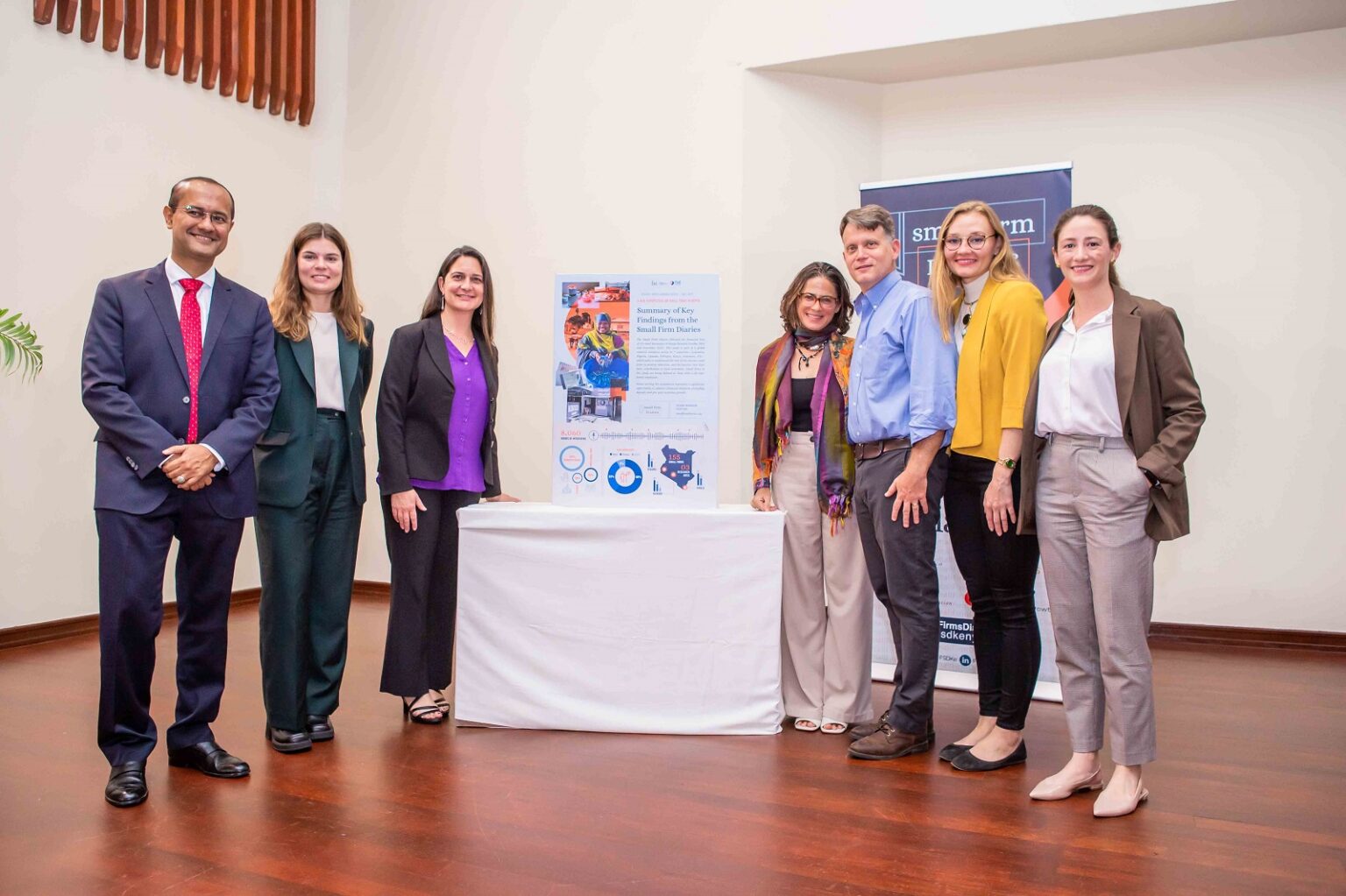Global Courant 2023-05-25 14:50:46
Financial Sector Deepening (FSD) Kenya and New York University’s Financial Access Initiative (FAI) research center, Today presented the results of the Kenya Diaries of small firms (SFD) study in Nairobi.
The Small Firm Diaries is a global research project that will be conducted between 2021 and 2023 in seven countries: Kenya, Nigeria, Uganda, Ethiopia, Indonesia, Fiji and Colombia. The study aims to improve understanding of how small businesses can overcome the barriers they face to thrive in the modern economy and thus contribute to poverty reduction.
In each country, a team of field researchers visited a sample of small business owners in low-income neighborhoods weekly for a year to collect quantitative and qualitative data on their financial flows. This information sheds light on small businesses’ economic decision making, strategies and constraints as they navigate uncertain situations.
Financial Sector Deepening (FSD) Kenya and New York University’s Financial Access Initiative (FAI) research center expect these results to inform the design of future development policies, financial services and tools to help small businesses and their workers thrive.
The study was funded by the Argidius Foundation, the Aspen Network of Development Entrepreneurs (ANDE), the Bill & Melinda Gates Foundation, Financial Sector Deeping Kenya and the Mastercard Center for Inclusive Growth.
Results of the study in Kenya
In Kenya, the survey was conducted between October 2021 and October 2022 in the provinces of Kisumu, Kwale and Nairobi.
The study found that while the Kenyan sample has the largest group of businesses that have been open for 7 years or more compared to other countries in the study, it falls in the middle of the pack in terms of monthly revenue, with 75% of businesses operating less than than earn KShs 240,000. This level of income impacts workers’ quality of life, with approximately two-thirds of staff, interviewed, reporting difficulty in having enough money to buy essential items for their families.
The main findings from the study are as follows:
Financial Inclusion: About 60% of small business owners in Kenya have bank accounts that they use for business purposes. However, the use of accounts is uneven, with the majority of these companies handling less than a quarter of their transactions through bank accounts. Mobile money: Kenya is a major positive outlier in terms of mobile wallet ownership, with nearly 70% of respondents reporting using a mobile money account for their business. Usage is still low, however, with most of these companies using their accounts for a small percentage of their total transaction value. Diversity of sectors: The survey focused on three industries – light manufacturing, agricultural processing and services – all of which play a vital role in Kenya’s economic development and sustainability. Half of the companies in the Kenyan sample are engaged in small-scale manufacturing such as carpentry, metalworking and construction; 20% in services such as printing, car and bicycle repair and maintenance; and 26% in agricultural processing industries such as meat and fish preservation and food preparation. Small businesses play a vital role in these sectors, creating value for local economies. Business stability: Like those in the global sample, Kenyan companies are experiencing volatile earnings. Income and expenses fluctuate in unpredictable and difficult to control ways from month to month. Despite access to finance being the third biggest barrier to business owners’ vision of success, many business owners in the global sample, including those in Kenya, say they “rarely” or “never” need a loan. Length of credit: When applying for loans, the companies analyzed say that working capital is a greater need than investment capital. They often look to sources other than banks, such as their own suppliers, for loans and rarely take business risks that could lead to a negative monthly cash flow. These facts confirm their need for working capital to cover liquidity needs. Job security: Kenyan companies seem to offer somewhat more job stability to key employees compared to companies in other countries in the study. Yet only half of small business employees were paid 8 months or more in a 10-month period; a quarter of the employees worked for the same company for less than 5 months during that period.
Overall, the survey concluded that stability and growth are a priority for the entrepreneurs interviewed. According to the research, these companies face high volatility in their revenues and expenses. They cited “rising costs and supply issues” as the main barrier to achieving their vision of growth and stability.
Timothy Ogden, Managing Director of the global study and of the Financial Access Initiative at NYU commented, “We see that these entrepreneurs have ambitions to grow, and they are dynamic and constantly working towards those goals. But that dynamic often translates into overcoming the volatility and risk they face, rather than helping them achieve their goals. Every time they can seize an opportunity, they face a wave that knocks them back, particularly due to a lack of liquidity and working capital. Policies and financial tools that allow them to manage volatility can enable these entrepreneurs to contribute much more to the country’s economy and development.”
“This study plays an important role in unraveling the intricate dynamics of the financial behaviour, challenges and aspirations of small businesses around the world, including Kenya. By delving into the day-to-day realities faced by small businesses, the Small Firm Diaries study provides us with crucial insights for evidence-based interventions and policies that can drive sustainable economic growth. It provides an invaluable opportunity to identify gaps in the financial services industry and develop innovative solutions tailored to the unique needs of small businesses. FSD Kenya is committed to using the findings of this research to improve financial inclusion, foster entrepreneurship and unlock the full potential of small businesses in driving economic prosperity for both individuals and communities,” said Tamara Cook, Chief Executive Officer at Financial Sector Deepening (FSD) Kenya.
Shehryar Ali, Country Manager for East Africa at Mastercard said: “Mastercard recognizes the tremendous potential of small businesses and the central role they play in driving economic growth and creating opportunities. Understanding the needs and challenges faced by small businesses through such studies is critical to fostering the establishment of a more supportive small business ecosystem that will drive innovation, job creation and economic prosperity.
The reports presented Today—The Kenya Country Data Overview and the Financial Access Report—are just the beginning of the analysis and insight the study will provide. Financial Sector Deepening Kenya and the Financial Access Initiative are collaborating to advance insights and work with public and private sector partners to benefit small businesses in Kenya.
The study aims to guide the policies and practices of a wide variety of actors and stakeholders. The results can be used by others in their own independent research to address the challenges faced by MSMEs in low- and middle-income communities in Kenya and around the world.
Finally, it enables companies and governments to design or improve products and programs that increase the capacity and productivity of small businesses. It also enables organizations to design financial services products, including digital financial services, that better meet the liquidity and investment needs of SMEs, enabling them to expand their business in terms of income, productivity, employment and wages paid.








